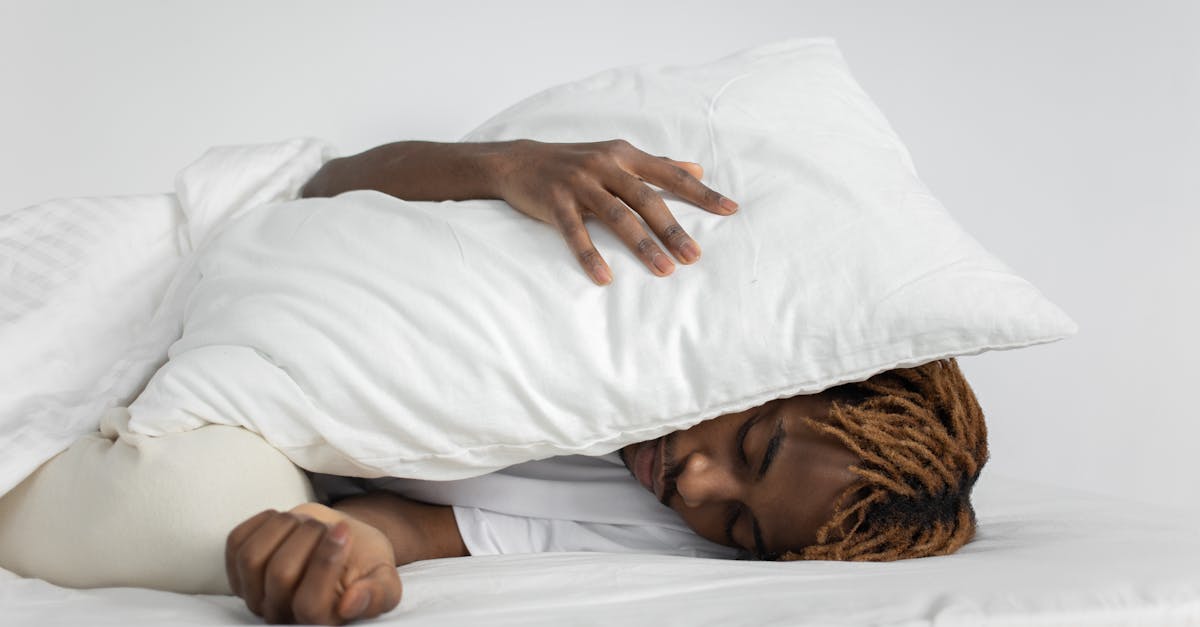|
In Short, optimizing sleep positions for neck pain relief is a crucial practice that enhances restful nights and overall well-being. By focusing on proper alignment during sleep, individuals can experience significant reductions in discomfort and improved healing. Utilizing methods offered by Pulse Align, clients benefit from personalized strategies aimed at correcting posture and alleviating issues associated with necka pain. This approach integrates neuromuscular recalibration, promoting a gentle, effective means to support the body’s natural ability to recover while ensuring a pain-free experience. |
Struggling with neck pain can impede your ability to rest effectively. By optimizing your sleep positions, you can significantly improve your nightly recovery and reduce discomfort. Pulse Align focuses on enhancing spinal alignment through specialized techniques that promote better posture while you sleep. Utilizing ergonomic practices, you can embrace a more restorative sleep experience, ultimately leading to greater freedom of movement and overall well-being.

Discover Pulse Align: Your Partner in Restoring Balance and Posture
At Pulse Align, we recognize the importance of maintaining a strong connection between your body and well-being. Our innovative approach utilizes gentle stimulation to help your body restore its natural balance and posture, supporting muscle tone symmetry and enhancing overall wellness. Clients appreciate the non-invasive method that promotes relaxation while naturally reducing tension and discomfort.
The Gentle Recalibration Approach
Pulse Align’s unique process focuses on the body’s ability to recalibrate itself, promoting improved posture and comfort without explicitly addressing discomfort or tension. Our method nurtures the body’s innate capabilities, allowing for effortless alignment and balance restoration. As a result, many clients report a newfound sense of ease and physical harmony following their sessions, which often leads to better overall well-being.
Personalized Client Experiences
Our clients experience transformative improvements in their journey towards better wellness. Many have shared how the gentle recalibration methods at Pulse Align have contributed to enhanced postural balance and relaxation. Testimonials reflect an increase in overall comfort, with individuals recognizing the positive impacts on their daily lives. Our approach is suitable for everyone in the family – from children to pregnant women – making it a welcoming solution for all.
Book Your Consultation Today
We’re excited for you to explore the benefits of Pulse Align in your journey towards wellness. Discover nearby locations in Montreal, La Prairie, Terrebonne, and others. Our services complement existing healthcare practices, but always keep you under the guidance of your wellness team. Visit the Pulse Align website to learn more and schedule your consultation. Embrace a safe, family-friendly approach to enhance your well-being today!
Medical Disclaimer
The information and advice provided by Pulse Align do not replace the advice, diagnosis, or treatment of a healthcare professional. We encourage clients to remain under the supervision of their healthcare team. The relief experienced is attributed to the body’s natural ability to restore balance, not to direct interventions from Pulse Align.
Optimizing Sleep Positions for Neck Pain Relief: Benefits of Pulse Align
- Back Sleeping: Maintains spinal alignment and supports neck posture.
- Side Sleeping: Use a supportive pillow to prevent neck strain.
- Stomach Sleeping: Generally discouraged due to increased neck tension.
- Pillow Choice: Opt for a contour pillow to fill the neck and head gap.
- Elevation Techniques: Elevate head slightly to relieve neck pressure.
- Body Positioning: Keep arms aligned with the body to reduce tension.
- Temperature Control: Maintain a comfortable sleep environment for relaxation.
- Pre-Sleep Stretching: Gentle neck stretches can aid in muscle relaxation.

Optimizing Sleep Positions for Neck Pain Relief
Neck pain can significantly disrupt your sleep and daily activities, making it imperative to understand how sleep positions affect discomfort. This article explores how adopting the right sleep positions can lead to neck pain relief, while highlighting the holistic benefits of Pulse Align techniques that promote spinal alignment and overall well-being.
The Importance of Proper Sleep Alignment
Proper alignment while sleeping is crucial for maintaining spinal health and reducing neck pain. When your neck and spine are properly supported, the risk of developing a stiff neck or discomfort associated with text neck decreases significantly. Choosing the suitable pillow and mattress is fundamental in creating the right sleeping environment.
Back Sleeping
Sleeping on your back is often regarded as the best position for spinal alignment. Using a contour pillow can help maintain the natural curve of the neck, ensuring that both the head and neck are properly supported. This position allows for optimal recovery during the night, reducing the chances of waking up with neck discomfort. Additionally, it promotes greater core strength and stability while sleeping.
Side Sleeping
If you prefer to sleep on your side, it is vital to choose a supportive pillow that fills the space between your head and shoulder. This ensures that the neck remains in neutral alignment with the spine. Side sleeping can be beneficial for those struggling with cervical pain, but inadequate pillow support can lead to further strain. Therefore, investing in appropriate sleeping aids can significantly enhance comfort and lead to better sleep quality.
Avoid Stomach Sleeping
In contrast, sleeping on your stomach is generally not recommended as it can strain neck muscles and add pressure on the spine. This position often forces your neck to twist in unnatural ways, leading to increased discomfort and tension. For those who habitually sleep on their stomach, transitioning to back or side sleeping may be beneficial in alleviating neck pain.
Integrating Pulse Align Techniques
Employing Pulse Align methodologies can amplify the benefits of proper sleep positions. Through neuromuscular recalibration, Pulse Align techniques guide the body in restoring natural balance, further enhancing the effects of correct sleep alignment. Simple daily practices, such as gentle stretching or positioning adjustments, can facilitate the overall effectiveness of your sleep environment.
Creating a Supportive Sleep Environment
Your sleep environment can significantly influence your sleep quality. Keeping your bedroom dark, cool, and quiet promotes relaxation. Additionally, ensuring your mattress provides adequate support is essential for preventing discomfort during the night. Pulse Align emphasizes the significance of an ergonomic workstation during the day, as poor posture affects sleep positions and overall health.
Practical Tips for Pain-Free Rest
To further optimize sleep positions for neck pain relief, consider incorporating light stretches before bed. Engaging in neck pain exercises can promote relaxation and relieve tension built up throughout the day. Additionally, maintaining good posture throughout the day will help reinforce the benefits of proper sleeping positions.
The Impact of Sleep on Overall Well-being
Quality sleep plays a pivotal role in managing neck discomfort. By adopting optimal sleep positions that maintain spinal alignment, individuals can experience reduced pain and improved recovery. A focus on natural healing through techniques like Pulse Align not only enhances sleep quality but fosters a holistic approach to health.
| Optimized Sleep Positions | Benefits of Pulse Align Approach |
| Back Sleeping | Encourages natural alignment and promotes overall wellness. |
| Side Sleeping | Enhances comfort and fosters a balanced neck position. |
| Stomach Sleeping | Less recommended but can benefit from gentle adjustments. |
| Using a Supportive Pillow | Facilitates natural neck contour and promotes restful nights. |
| Elevation Techniques | Helps alleviate tension and encourages body recalibration. |
| Frequent Position Changes | Fosters adaptability and encourages fluid body adjustment. |
| Proper Body Positioning | Promotes overall balance and reduces unnecessary strain. |
| Temperature Control | Creates a conducive environment for relaxation. |
| Gentle Stretching Before Sleep | Encourages muscle relaxation and optimal positioning. |
| Mindful Breathing Techniques | Promotes calmness and supports holistic wellness. |

Client Testimonials: Embracing Wellness Through Improved Sleep Positions
Clients from various regions have discovered the transformative benefits of optimizing sleep positions for neck pain relief through the unique approach offered at Pulse Align. Many have shared their experiences, highlighting how the techniques not only aid in improving their sleep but also support their body’s natural ability to recalibrate and restore balance.
In La Prairie, for instance, one satisfied client expressed, “After incorporating Pulse Align’s guidance on sleep positions, I feel an incredible difference. I no longer wake up with that nagging neck tension. It feels like my body is finally finding its rhythm again.” This sentiment echoes throughout the community, where individuals are recognizing the value of proper alignment during sleep.
Residents of Mont-Royal have also experienced notable changes. A local client remarked, “Even with a busy lifestyle, implementing the suggested sleep positions made a world of difference. The gentle techniques provided by Pulse Align are truly supportive—it feels like giving my body the care it truly deserves.” This emphasis on a gentle, holistic approach resonates with many seeking to enhance their overall well-being.
In Terrebonne, another client shared, “At first, I thought it was just about changing my pillow, but the guidance from Pulse Align helped me understand the bigger picture. My body is not only feeling better; it’s as if my sleep quality has significantly improved, allowing me to wake up refreshed and pain-free.” This holistic recovery mindset is reflected in their commitment to a sustainable wellness journey.
Further north, clients from Chicoutimi have found themselves embracing the methods offered by Pulse Align. One individual noted, “The expertise in recalibrating muscle tension has allowed me to sleep soundly without discomfort. The support I received has been life-changing, providing me more energy throughout my day.”
Additionally, people in areas like Châteauguay and Saint-Jérôme are celebrating similar experiences. A client from Châteauguay shared, “Utilizing the recommended sleep positions, my neck pain has decreased significantly. I maintain better posture during the day and see how connected my sleep habits are to overall wellness.” There is a notable trend of empowerment through understanding one’s own body and its processes in these testimonials.
Moreover, clients in Deux-Montagnes have echoed similar sentiments, stating, “The Pulse Align services have provided an enlightening experience. I now prioritize my sleep position as part of my self-care and wellness routine, and it shows in my daily comfort levels.”
With locations that span across various cities, the expertise available at Pulse Align works in concert with clients and their families to foster a progressive path towards holistic recovery. If you’re interested in learning about how these services can support your wellness journey, explore Our Clinics to find the nearest location to you, whether in Panama City or closer to home.
Neck pain can be incredibly disruptive, diminishing the overall quality of life for those who suffer from it. One of the often-overlooked factors contributing to neck discomfort is the choice of sleep positions. Understanding the right posture for sleep is crucial to alleviating discomfort and enhancing recovery. With organizations like Pulse Align, patients are offered insights and strategies to optimize their sleep environment, promoting pain relief and rejuvenation.
Dr. Sylvain Desforges is a prominent figure in the realm of holistic health, specializing in osteopathy, naturopathy, and manual medicine. As the founding president of TAGMED clinics, he has made significant strides in advancing healthcare solutions that focus on chronic pain management. His innovative approaches include the integration of cutting-edge technologies such as spinal decompression, laser therapy, and shockwave therapy, aimed at enhancing patient outcomes.
Dr. Desforges’ commitment to evidence-based care stands as a foundation for his practice. By emphasizing the importance of individualized treatment plans, he ensures that each patient receives tailored support that aligns with their specific health needs. This dedication is reflected in the success stories of countless patients who have experienced significant relief from chronic neck pain and other ailments through his methodologies.
The link between sleep posture and neck pain is especially significant. Improper sleeping configurations can exacerbate existing issues, such as inflammation, stiffness, and tension. By educating patients on optimal sleep positions, Pulse Align aims to create a beneficial cycle of recovery. Whether it’s recommending the best pillow height, the right mattress firmness, or correct body alignment, understanding the science of sleep posture can lead to profound improvements in well-being.
At Pulse Align, techniques are employed that promote a holistic approach to health. Dr. Desforges and his team provide insight into how positioning can influence the effectiveness of various treatments. Through neuromuscular recalibration, therapy can relieve pressure on the neck and assist in restoring balance within the musculoskeletal system. This attention to both the physical and lifestyle factors contributing to neck pain ensures that treatments extend beyond the clinic and into patients’ daily lives.
Moreover, the rising trend of technology-induced conditions, such as “tech neck”, highlights the need for awareness regarding posture, especially during nighttime. As more individuals engage in prolonged screen time, the role of effective posture in preventing cervical discomfort has never been more critical. Pulse Align educates clients on reducing stress on the cervical spine while they sleep, ultimately allowing them to wake up refreshed and without the burden of ache.
Through his tenure, Dr. Desforges has shown that caring for the neck, particularly during rest, can yield significant results. His approach emphasizes the importance of attention to detail, both in therapy and preventive measures. The combination of education, state-of-the-art technology, and hands-on treatment positions TAGMED clinics as leaders in the pursuit of comprehensive neck pain relief.
The journey to optimal sleep positions for neck pain relief is enriched by the supportive framework provided by Pulse Align. Patients are invited to explore how small adjustments in their sleeping arrangements can lead to substantial benefits. By focusing on the fundamentals of posture and the pillars of holistic health, individuals can reclaim their nights and enhance their days effectively.
The Role of TAGMED’s Neurovertebral Decompression Therapy in Chronic Pain Management
Mechanism of Action
TAGMED’s neurovertebral decompression therapy employs a controlled, progressive traction force on the spine. This innovative approach increases the space between vertebrae, effectively reducing pressure on intervertebral discs and nerve roots. By creating this extra space, the therapy facilitates improved fluid circulation in the targeted area. This enhanced circulation supports the body’s natural healing process by decreasing inflammation and alleviating pain, making it a promising option for individuals suffering from conditions such as herniated discs, bulging discs, and moderate to severe spinal or foraminal stenosis.
Specific Benefits
One of the standout features of TAGMED’s non-invasive decompression technology is its effectiveness in addressing chronic pain and associated symptoms. By decreasing the pressure exerted on nerve structures, the therapy minimizes discomfort and fosters an optimal environment for recovery. Additionally, the improved circulation of fluids around the discs accelerates rehabilitation, enhancing the overall quality of life for patients. This therapy is particularly beneficial for those who have struggled with traditional methods of pain relief without significant results.
Comparison with Other Treatments
When evaluating TAGMED’s neurovertebral decompression therapy against other commonly used treatment modalities, such as pain medications, corticosteroid injections, surgery, or traditional physical therapy, several distinctions emerge. Unlike invasive options that carry greater risks and potential complications, TAGMED’s method avoids these interventions and minimizes risks related to pharmaceuticals. Patients who engage with neurovertebral decompression therapy frequently experience a quicker recovery time and report lasting alleviation of pain—an attractive alternative for individuals aiming to escape the burden of chronic discomfort.
Case Studies and Testimonials
Numerous patients have shared their positive experiences following TAGMED’s decompression therapy. For example, a patient suffering from chronic lower back pain reported that after undergoing the therapy, their pain significantly diminished, allowing them to resume daily activities with renewed vigor. Another patient shared, “The neurovertebral decompression therapy was a game-changer for me. I found relief that I hadn’t experienced with traditional treatments. I feel more active and engaged in life once again.” Such testimonials reflect a collective trend among patients who benefit from the holistic nature of this therapy, showcasing improved pain management and reduced reliance on pharmacological interventions.
Understanding the intricacies of how sleep positions can impact neck pain is essential for anyone seeking relief from discomfort. Adopting the right posture while sleeping can significantly influence overall health and well-being, allowing individuals to wake up rejuvenated rather than burdened by pain. The connection between spinal alignment and the choice of sleeping posture is crucial, and making adjustments can pave the way for better recovery during the night.
At the forefront of this mission is Pulse Align, a dedicated approach that blends holistic methods with personalized insights. This innovative technique emphasizes the importance of posture correction and neuromuscular recalibration, nurturing the body’s innate ability to realign itself naturally. By understanding the root causes of neck discomfort, clients can integrate practical strategies into their nightly routines, leading to a more restful sleep experience.
Many individuals often overlook the influence of their environment, such as the choice of mattress and pillow, on their sleeping patterns. With Pulse Align’s guidance, clients can explore ergonomic approaches to bolster neck stability and promote comfort. Simple modifications, like using contoured pillows or adjusting body positioning, can result in a noticeable improvement in sleep quality and overall physical wellness.
Incorporating gentle stretches and awareness of sleep postures before bedtime serves to enhance the benefits of Pulse Align techniques. Through education and tailored recommendations, individuals can reclaim not only their nights but also their days, experiencing improved functionality and reduced discomfort. By embracing the powerful connection between optimal sleep positions and effective pain management, one can discover a path to long-lasting relief and rejuvenation.

Do you suffer from a chronic condition that responds little or not at all to conservative treatments?
If you are among those who seek innovative, non-invasive solutions to optimize your sleep and well-being, look no further than Pulse Align. Our unique approach focuses on supporting your body’s natural balance and posture through gentle, imperceptible pulses. This method encourages your body to reduce muscle tension and promote a sense of calm, leading to restful nights and refreshed mornings.
At Pulse Align, we understand that discomfort can be influenced by various factors, including imbalances in muscle tone and posture. Rather than targeting discomfort directly, our approach fosters the body’s self-regulation. Clients often find themselves experiencing remarkable improvements in their overall comfort and posture, as our gentle, holistic techniques allow the body to recalibrate in a supportive atmosphere.
What sets Pulse Align apart is our personalized care. We celebrate the stories of clients who, after integrating our services into their routines, have seen significant benefits in their daily lives. From easing that tightness in the neck to enhancing mobility, our clients frequently express their gratitude for the improved wellness they’ve achieved. With our welcoming environment, families—including children and pregnant women—can experience the wholesome benefits of our non-invasive services together.
To explore your journey toward a more balanced life, we warmly invite you to visit the Pulse Align website. There, you can discover nearby locations in cities such as La Prairie, Mont-Royal, and Terrebonne, find detailed information about our services, and book an appointment that suits you and your family’s needs. Remember, Pulse Align is designed to complement your existing healthcare team, providing a safe and supportive environment for you to thrive. Visit Pulse Align today and take the first step toward embracing a more harmonious and peaceful lifestyle!
Frequently Asked Questions
Neck Pain
Should I avoid certain sleeping positions?
Sleeping on your stomach with your head turned sideways puts extra pressure on the neck. Sleeping on your back or side is preferable.
Can massage balls help relax neck muscles?
Yes, using a tennis or massage ball gently against the neck can relieve muscle tension.
Can massage worsen neck pain?
A gentle, appropriate massage shouldn’t worsen pain. If it does, stop and consult a professional.
Does a cervical herniated disc always cause pain?
Not always, but it can cause pain, numbness, tingling, and weakness in the arms when it compresses a nerve root.
Do posture reminder apps help?
Yes, they encourage you to straighten your head and reduce time spent in poor positions.
Does car driving posture matter?
Yes, a poorly adjusted seat, a steering wheel too far, or a bad driving position can strain your neck.
Does holding my phone cause neck pain?
Yes, holding a phone with your head tilted down for extended periods can cause neck strain.
Are sedentary people at higher risk?
Yes, physical inactivity and prolonged sitting increase stiffness and neck pain risk.
Is osteopathy effective?
Many find relief through osteopathy, which aims to restore musculoskeletal balance.
Is Pilates recommended?
Yes, Pilates strengthens deep muscles and improves posture, helping to reduce neck pain.
Sophie Gambert understands that neck pain is far more than a physical ache—it’s a roadblock to living the life you love. As a Neck Pain Awareness Advocate at Pulse Align, she is committed to shedding light on the underlying causes, sharing practical relief strategies, and offering genuine support to readers seeking to reclaim their freedom of movement. With a warm, empathetic voice and a keen eye for the latest in pain management research, Sophie leads conversations that uplift, educate, and inspire. She believes that every individual deserves to feel heard, understood, and guided toward healing, one step at a time.
Medical Disclaimer
The information and advice provided on this site do not replace the advice, diagnosis, or treatment of a healthcare professional. Please note that the author of this article is neither a doctor nor a specialist in a medical specialty as defined by the Collège des médecins du Québec. Manual medicine, functional medicine, and sports medicine as described on this site exclude any medical treatment or diagnosis made by a doctor or medical specialist. Always consult your doctor for any medical questions. For more details, please read our complete Legal Notice.




